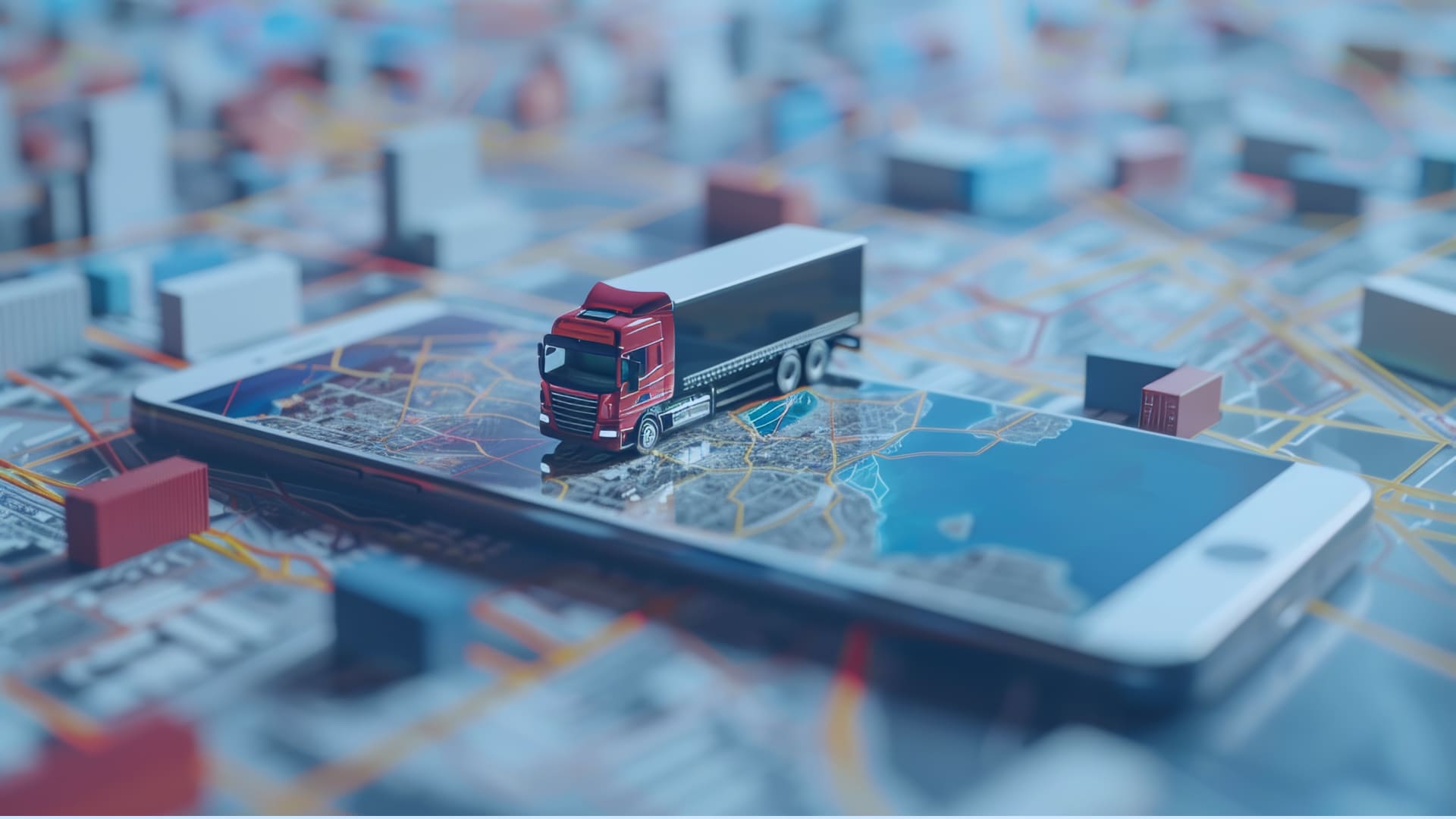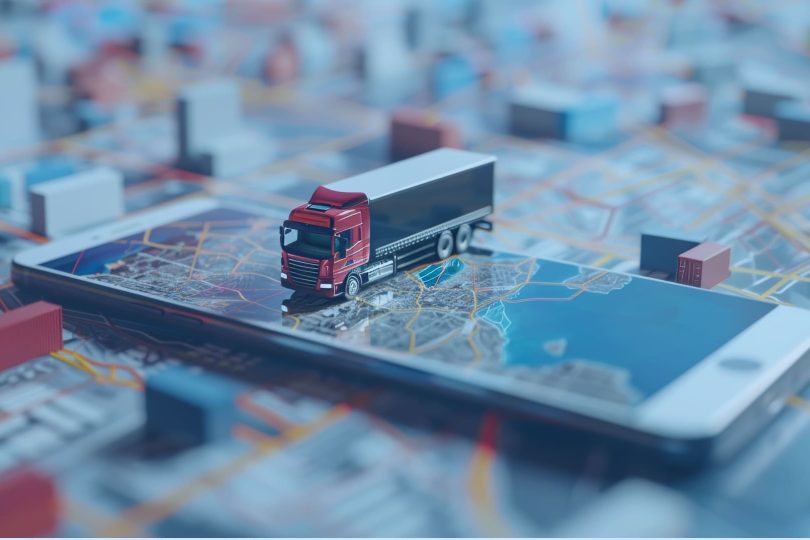Understanding FMCG Vehicle Tracking Software

Key Benefits of Vehicle Tracking Software for FMCG Companies
Enhanced Route Optimization
With vehicle tracking software, FMCG companies can optimize delivery routes. The software analyzes traffic patterns, road conditions, and delivery schedules to suggest the most efficient routes. This reduces fuel consumption, delivery time, and operational costs.
- Real-Time Adjustments: The software can adjust routes in real-time, avoiding traffic jams and roadblocks. This ensures timely deliveries and enhances customer satisfaction.
- Reduced Fuel Costs: By optimizing routes, companies can significantly cut down on fuel expenses, contributing to overall cost savings.
Improved Delivery Time Management
- Accurate ETAs: Customers receive accurate estimated time of arrivals (ETAs), improving transparency and trust.
- Proactive Management: Managers can address potential delays proactively, ensuring that the delivery process runs smoothly.
Cost Savings
Implementing vehicle tracking software can lead to significant cost savings. From reducing fuel consumption to minimizing vehicle wear and tear, the financial benefits are substantial.
- Maintenance Management: The software helps schedule regular maintenance, preventing costly breakdowns and extending vehicle life.
- Operational Efficiency: By streamlining operations and reducing idle time, companies can cut down on unnecessary expenses.
Enhanced Security
Security is a major concern in the FMCG industry, where high-value goods are frequently transported. Vehicle tracking software enhances security through real-time monitoring and alerts.
- Theft Prevention: If a vehicle deviates from its planned route or exhibits unusual behavior, the software sends immediate alerts to the management.
- Geofencing: Companies can set virtual boundaries (geofences) and receive alerts when vehicles enter or exit these areas.
Better Customer Satisfaction
Customer satisfaction is crucial for FMCG companies. Vehicle tracking software helps ensure that deliveries are made on time, every time, enhancing customer trust and loyalty.
- Transparent Communication: Customers are kept in the loop with real-time updates, fostering transparency.
- Reliable Deliveries: Consistently meeting delivery promises boosts customer confidence and satisfaction.
Implementing Vehicle Tracking Software in FMCG Companies
Assess Your Needs
Before implementing vehicle tracking software, assess your company’s specific needs. Consider factors like fleet size, delivery frequency, and budget.
Choose the Right Software
Select a vehicle tracking software that aligns with your company’s needs. Look for features like real-time tracking, route optimization, and maintenance alerts.
Train Your Team
Ensure that your team is well-versed in using the software. Provide comprehensive training sessions to maximize the software’s benefits.
Monitor and Adjust
Regularly monitor the software’s performance and make necessary adjustments. Use the data provided to continuously improve your logistics operations.
Challenges and Solutions
Challenge: Initial Implementation Costs
Implementing vehicle tracking software can be costly initially. However, the long-term benefits far outweigh the initial investment.
- Solution: Consider the long-term ROI. The cost savings in fuel, maintenance, and operational efficiency will quickly offset the initial expenses.
Challenge: Data Privacy Concerns
With the collection of real-time data, there can be concerns about data privacy.
- Solution: Choose a reputable software provider with robust data security measures. Ensure compliance with data protection regulations.
Challenge: Employee Resistance
Employees might resist the change due to fear of constant monitoring.
- Solution: Communicate the benefits of the software to your team. Highlight how it will make their jobs easier and improve overall efficiency.
Future Trends in FMCG Vehicle Tracking
Integration with AI and Machine Learning
Artificial Intelligence (AI) and Machine Learning (ML) are set to revolutionize vehicle tracking in the FMCG sector. By analyzing vast amounts of data, AI and ML can provide predictive insights and automate decision-making processes, thereby enhancing efficiency and reducing costs.
Predictive Analytics
AI and ML can analyze historical data to predict traffic patterns, delivery times, and potential delays. This enables companies to plan routes more efficiently, avoiding traffic congestion and minimizing delays.
- Traffic Prediction: Using real-time data, AI can predict traffic conditions and suggest alternative routes to avoid congestion.
- Delivery Time Estimation: ML algorithms can learn from past delivery times and provide more accurate ETAs, improving customer satisfaction.
Automated Maintenance
Predictive maintenance powered by AI can foresee potential vehicle issues before they become serious problems. This reduces downtime and maintenance costs.
- Sensor Data Analysis: AI can analyze data from vehicle sensors to predict when parts need maintenance or replacement.
- Scheduled Maintenance: Based on predictive insights, companies can schedule maintenance at optimal times, ensuring minimal disruption to operations.
Enhanced Analytics
Advanced analytics provide deeper insights into fleet performance, helping FMCG companies make data-driven decisions to improve their logistics operations.
Performance Metrics
Analytics tools can track various performance metrics such as fuel efficiency, driver behavior, and delivery times.
- Fuel Efficiency: Monitoring fuel usage helps identify patterns and areas for improvement, leading to significant cost savings.
- Driver Behavior: Analyzing driver behavior (e.g., speed, braking patterns) helps improve safety and efficiency.
Route Optimization
Analytics can continuously refine route optimization algorithms, taking into account real-time data and historical trends.
- Dynamic Routing: Routes can be dynamically adjusted based on current conditions, ensuring the most efficient path is always taken.
- Historical Trends: By analyzing past data, companies can identify patterns and optimize routes accordingly.
Increased Automation
Automation will play a critical role in the future of vehicle tracking, streamlining operations and reducing manual intervention.
Automated Dispatch
Automated dispatch systems can assign vehicles and drivers to deliveries based on real-time data and pre-defined criteria.
- Real-Time Assignment: Vehicles are assigned to deliveries based on their current location, load capacity, and delivery urgency.
- Reduced Manual Errors: Automation minimizes human errors, ensuring more accurate and efficient dispatching.
Autonomous Vehicles
While fully autonomous vehicles may still be a few years away, semi-autonomous features are already making their way into the industry.
- Driver Assistance: Advanced driver-assistance systems (ADAS) can enhance safety and efficiency by assisting with tasks like lane-keeping and adaptive cruise control.
- Reduced Human Error: Semi-autonomous features reduce the likelihood of accidents caused by human error, improving overall safety.
IoT Integration
The Internet of Things (IoT) is another technology that will significantly impact FMCG vehicle tracking by providing real-time data from various sensors.
Real-Time Monitoring
IoT devices can provide real-time data on vehicle conditions, driver behavior, and cargo status.
- Vehicle Health: Sensors can monitor vehicle health indicators such as engine temperature and tire pressure, ensuring timely maintenance.
- Cargo Monitoring: IoT devices can monitor cargo conditions (e.g., temperature, humidity) to ensure goods are transported under optimal conditions.
Enhanced Connectivity
IoT enhances connectivity between different parts of the logistics chain, providing a more integrated and efficient operation.
- Seamless Communication: IoT enables seamless communication between vehicles, warehouses, and distribution centers, improving coordination and efficiency.
- Centralized Management: A centralized system can manage and analyze data from multiple sources, providing a holistic view of operations.
Blockchain Technology
Secure Data Sharing
Blockchain ensures that data is securely shared and immutable, reducing the risk of fraud and enhancing trust.
- Tamper-Proof Records: Every transaction and movement is recorded on a blockchain, providing a tamper-proof audit trail.
- Enhanced Transparency: All parties involved can access a single source of truth, improving transparency and trust.
Smart Contracts
Smart contracts can automate various processes in the supply chain, from payment releases to compliance checks.
- Automated Payments: Payments can be automatically released once deliveries are confirmed, reducing delays and improving cash flow.
- Compliance Automation: Smart contracts can automatically verify compliance with regulatory requirements, ensuring that all legal standards are met.
Sustainable Practices
Sustainability is becoming increasingly important in the FMCG industry, and vehicle tracking technology can help companies achieve their sustainability goals.
Reduced Emissions
By optimizing routes and improving fuel efficiency, vehicle tracking software can help reduce emissions and minimize the environmental impact.
- Eco-Friendly Routes: The software can suggest eco-friendly routes that minimize fuel consumption and emissions.
- Fuel Management: Monitoring fuel usage and implementing efficient driving practices contribute to lower emissions.
Green Fleet Management
Companies are increasingly investing in electric and hybrid vehicles to reduce their carbon footprint.
- Fleet Electrification: Vehicle tracking software can manage and optimize the use of electric vehicles, ensuring efficient charging and deployment.
- Sustainability Metrics: Tracking and reporting on sustainability metrics help companies achieve and demonstrate their environmental goals.
Conclusion
Vehicle tracking software is a game-changer for FMCG companies. It offers a multitude of benefits, from cost savings and improved delivery times to enhanced security and customer satisfaction. By implementing this technology, FMCG companies can streamline their logistics, boost efficiency, and stay ahead in a competitive market.





